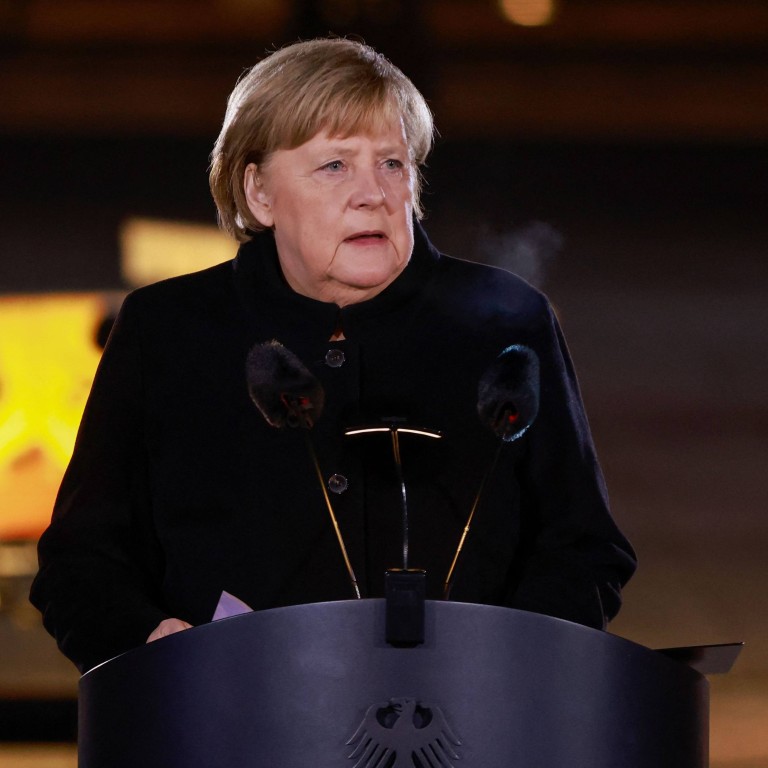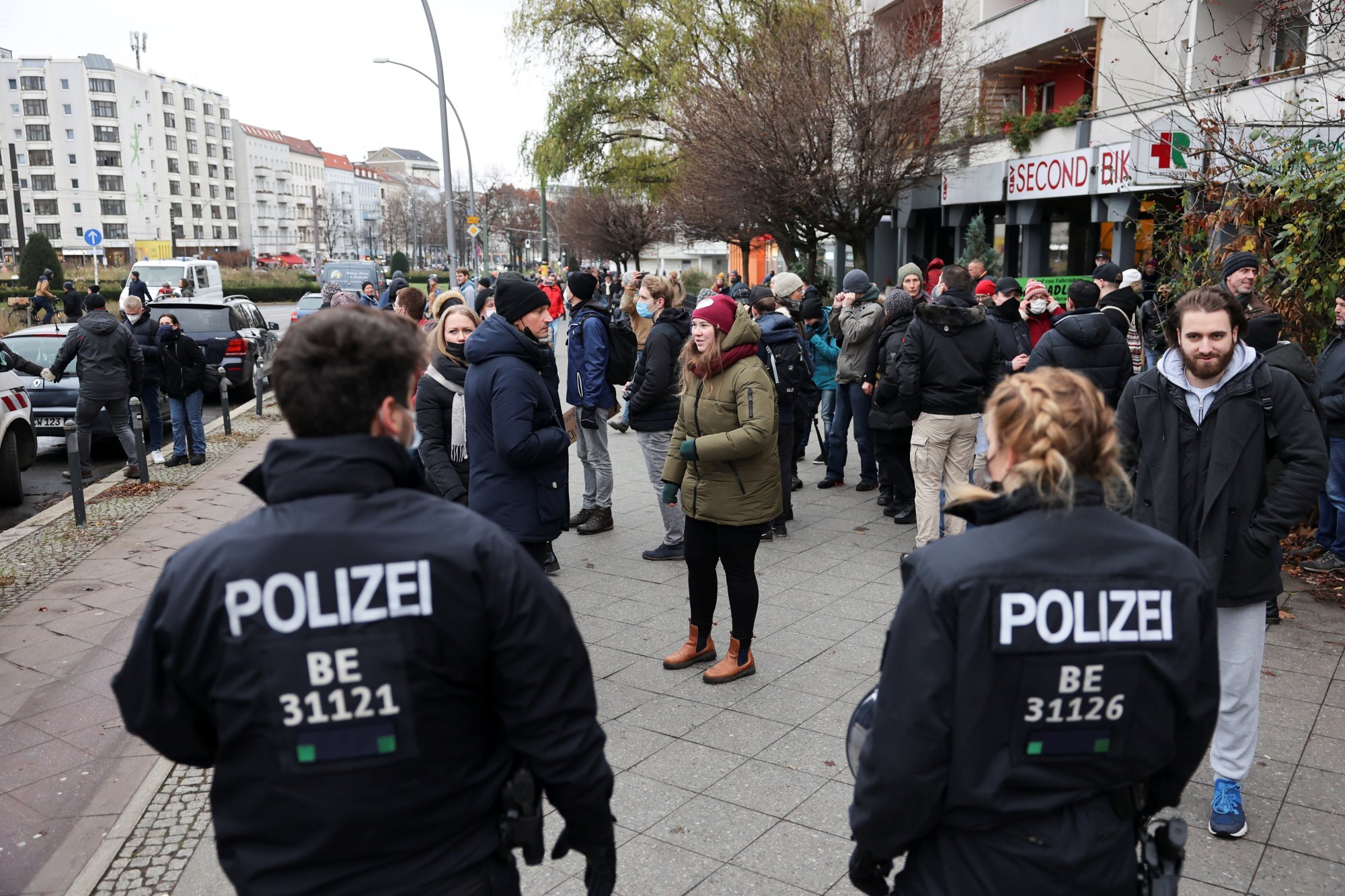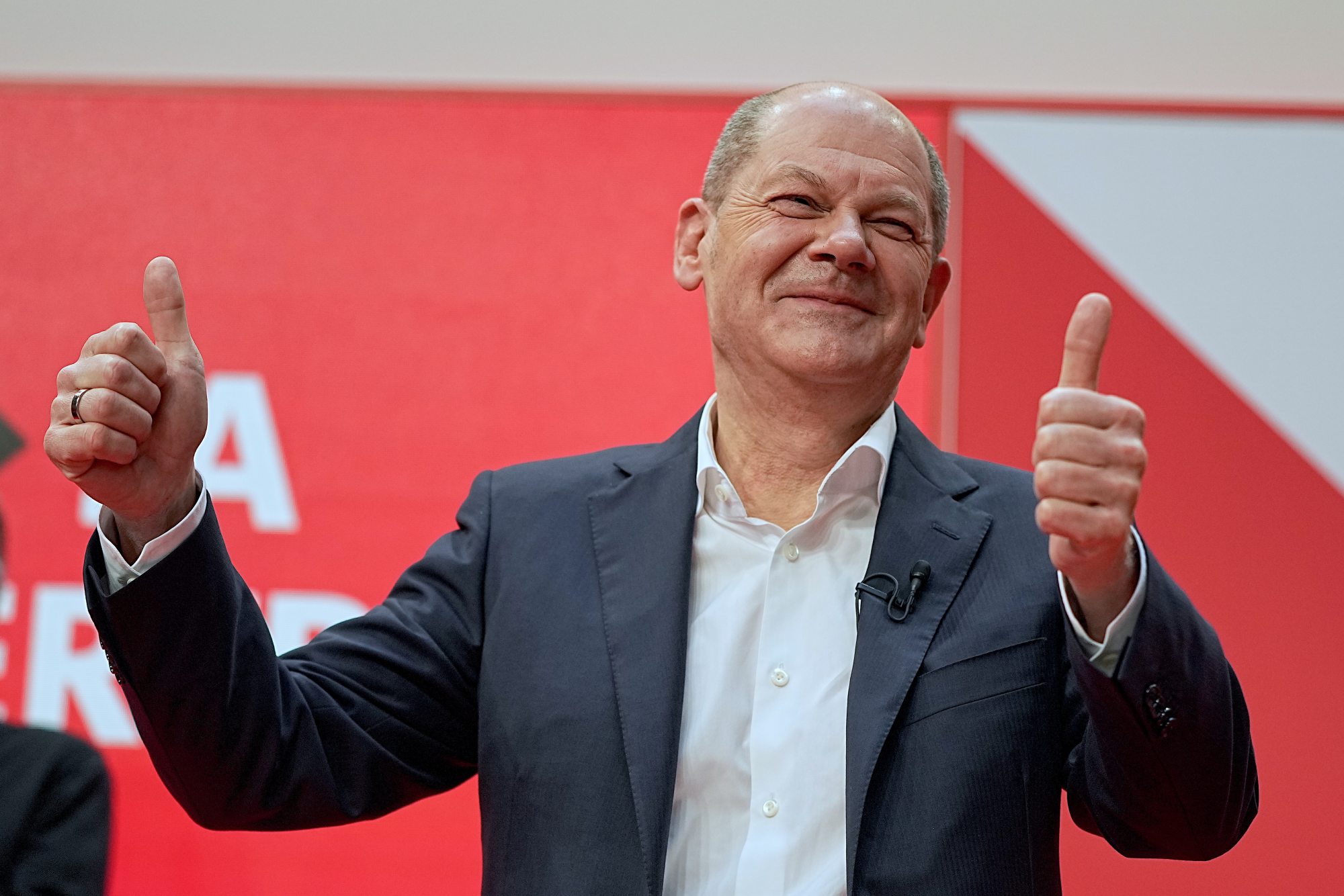
Coronavirus: Merkel uses final podcast episode to urge Germans to get vaccinated
- The outgoing chancellor said the new Omicron variant appeared to be more infectious and Germans must take the virus seriously, with 64,510 new daily cases reported
- Meanwhile, the Social Democrats, which narrowly won a federal election in September, voted to back a coalition agreement with the Greens and Free Democrats
German Chancellor Angela Merkel on Saturday urged Germans to get vaccinated against Covid-19, speaking days ahead of leaving office in the final episode of more than 600 weekly video podcasts.
“I once again emphatically ask you to take this tricky virus seriously,” Merkel said, calling the fourth coronavirus wave to hit Germany “very serious” and even “dramatic”, with intensive care units overloaded in some parts of the country.
“The new Omicron variant in particular seems to be even more infectious than those that came before. Get yourself vaccinated, whether it’s your first shot or a booster,” she added. “Every vaccine helps.”
In her podcast, she thanked “those who are reasonable and understanding in this difficult period” and “stick to the rules to protect themselves and take care of others”.
“You are the vast majority in our country. You demonstrate the civic responsibility that’s so marvellous about our country, without which no chancellor or government can achieve anything.”
Germany’s Merkel chooses punk for farewell military parade
One of Scholz’s first steps as head of government is expected to be passing a law to make vaccination compulsory from February or March next year. Most of the political spectrum has rallied behind the previously controversial move.
Other measures will be to exclude unvaccinated people across the country from non-essential stores, restaurants and sports and cultural venues.
At least 68.9 per cent of Germans are fully vaccinated against the coronavirus, short of the government’s aim of a minimum 75 per cent vaccination rate. The number of unvaccinated residents has been blamed as a key factor in a surge of new virus cases in recent weeks.

The national disease control centre on Saturday reported 64,510 new daily cases and a seven-day infection rate of 442.7 new cases per 100,000 residents. Another 378 deaths in 24 hours brought Germany’s total in the pandemic to 102,946.
“Every one of them leaves behind families or friends, stunned, speechless and helpless,” Merkel said in her video message. “This is so bitter because it is avoidable. With the effective and safe vaccines, we have the key to this in our hands.”
After 16 years in power, Merkel is expected to pass the reins to Social Democrat Olaf Scholz following a vote in parliament on Wednesday to elect the new chancellor.
‘She listened’: Chinese liberals reflect on meetings with Merkel
Looking back at her first video podcast in 2006, Merkel recalled that “back then it was very unusual for a head of government to address the public online so directly”.
“My hope at the time, that the World Cup should be a great party even beyond the stadiums, was more than fulfilled,” she added, using the “summer fairy tale” moniker Germans still apply to the football tournament they hosted that year.
While Merkel touched on a vast range of subjects in podcasts over her time in office, from digitalisation to anti-Semitism, in the past two years she has frequently spoken about the pandemic.

Meanwhile, members of the SPD, which narrowly won a federal election in September, voted on Saturday to back a coalition agreement with the Greens and Free Democrats that should allow the three-way alliance to take over next week.
The coalition, the first at federal level between the ideologically disparate Greens, the libertarian Free Democrats (FDP) and Scholz’s centre-left SPD, will end 16 years of conservative governments led by Merkel.
Greens and the FDP also need the approval of their members for the deal that the three parties agreed last month. They hope the lower house of parliament, the Bundestag, will vote Scholz in as chancellor on Wednesday.
Additional reporting by Associated Press and Reuters

.png?itok=arIb17P0)